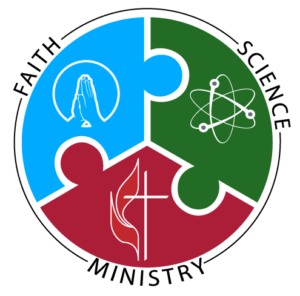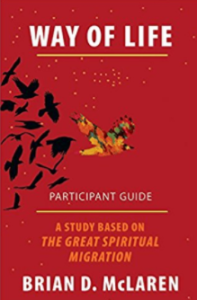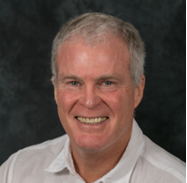Dear WesleyNexus Colleague:
We begin our December newsletter with a reflection by Kent Weaver, WesleyNexus Treasurer and longtime participant in science and religion conversations in the Washington, DC area. Kent shared this during the December 16, 2017 WesleyNexus Board of Director’s meeting and we all thought it a good way to begin our newsletter this month.
Ah, That’s the Tricky Part by Kent Weaver
As humans we are both emotional and intellectual beings. However, since the time of the Enlightenment our culture has tended to emphasize the intellectual dimension to our existence. This has led to extensive and accelerating mathematical and scientific advances ranging from quantum mechanics, to the general theory of relativity, to the mapping of the human genome. We are gaining detailed insights into the biological, chemical, and physical interactions of our world. We see that humans are enmeshed in an intricate web of animal and plant life on our planet. We understand that our planet is functionally a speck of rock hurdling through an unimaginably large universe that is expanding at an accelerating pace. We have developed staggering technologies. Yet, we know that we are ultimately finite, temporary, and cognitively limited creatures not capable of fully conceptualizing that which is not bound by time and space. As such, we encounter the sacred differently from our predecessors of earlier eras. Such encounters continue to be filled with wonder and awe. But for some of us images of the divine as a supernatural, anthropomorphic entity no longer work. Rather: the divine is understood as a creative and sustaining dynamic that is present in every aspect of the universe. The notion of Emmanuel, God-with-us, is profound for us. It means that the presence of the sacred can be found in every human being. But such an understanding leads to an existential challenge. How does one enter into and celebrate communion with an ultimate presence that is so abstractly understood? Ah, that is the tricky part.
Perhaps the practical answer is that it can only be experienced within relationship, activity, and community. Perhaps the divine is to be encountered in interacting with creation. Thrusting oneself into the world, the environment, the lives of other people – into living and being and helping others in their quest into living and being – becoming, not withdrawing. Perhaps there are times when contemplation and meditation are necessary for renewal, re-centering, and re-commitment. But, they are not to be the center or focus of existence. Despite our existential experience of fundamental isolation, life is not ultimately an individual pursuit.
We appreciate the contributions we have received throughout 2017. We will be using these funds to present our Evolution Weekend program on February 11 as a live video feed so that those unable to attend in person will be able to share in our discussion on the societal challenge of opioid addiction. To will continue to develop programs throughout 2018. We will need your support and hope you will consider helping us out. WesleyNexus is a 501(c)(3) charitable, educational organization, and we will acknowledge all gifts from individuals for tax reporting purposes.
Thanks in advance for your support.
God Bless,
Rick, Maynard, and the rest of the
WesleyNexus Board of Directors
Bishop’s Convocation on Faith, Science, & Ministry
Saturday, January 20, 2018 at the Virginia Conference Center in Glen Allen
 We know that 60% of the young people in our churches will not take the Christian faith into their adult’s lives, in significant part because of perceptions of conflict between science and faith. The 2018 convocation will explore two key questions.
We know that 60% of the young people in our churches will not take the Christian faith into their adult’s lives, in significant part because of perceptions of conflict between science and faith. The 2018 convocation will explore two key questions.
How can the church better engage science so that we can be more effective in our mission and ministry in a culture that has been and will be increasingly influenced by science?
How can we leverage—not just accommodate—popular interest in science?
Guest Speaker, Dr. April Maskiewicz Cordero, PhD, will provide the featured presentation on the topic, “Exploring the Coexistence of Evolution and Christianity.“ Dr. Maskiewicz is a professor of biology at Point Loma Nazarene University. Her research focuses on developing more effective approaches for teaching ecology and evolution that enable students to develop not only factual knowledge, but biological ways of reasoning about the living world. As a Christian biologist trained in science education research, she is in a unique position to investigate science students’ perceptions of the relationship between scientific issues that evoke controversy (i.e. origins of life, evolution, human origins) and Christian faith. Dr. Maskiewicz gave a TEDx talk on evolution and faith and she was featured in “From the Dust,” a BioLogos sponsored documentary. She is also active in several professional development projects with schoolteachers as well as university biology faculty, and was one of four professors coordinating the Point Loma Nazarene University/BioLogos “Biology by the Sea” Christian school teacher program.
Bishop Sharma D. Lewis, resident bishop of the Richmond episcopal area, is offering this convocation at the Glen Allen, VA Conference center and through live video feeds at six remote locations, four in Virginia and one in Maryland. The program is an all-day event, beginning at 9:00 a.m. (concluding at 3:00 p.m.) with presentations and group discussions. The locations are:
Christ Church UMC – Fairfax Station, VA
Oakdale UMC – Olney, MD
St. Mark’s UMC – Daleville, VA
Woodlake UMC – Richmond, VA
Williamsburg UMC – Williamsburg, VA
NOTE: Registration is required. To register, go to the event home page here: https://vaumfoundation.org/bishops-convocation/ . It is open to all but registration is required for all locations. There is a $20 fee for the event, that will help cover the costs of lunch in each location.
Way of Life by Brian McLaren 
This four-week study developed by Brian McLaren was designed specifically with United Methodists in mind. Leveraging the themes articulated in the The Great Spiritual Migration, McLaren worked with Abingdon Press to create this program designed for small church study and discussion with a DVD, leaders guide and a participant book. It is a worth-while option for those who don’t have the time or desire to read Mclaren’s book but are interested in engaging the ideas and challenges he presents.
A short discussion of the study can be found here:
http://www.umc.org/what-we-believe/get-your-spirit-in-shape-way-of-life
IRAS 2018 CALL FOR PAPERS
“Artificial Intelligence Turns Deep: Who’s in Control?”
64TH ANNUAL IRAS SUMMER CONFERENCE ON STAR ISLAND
(JUNE 23-30, 2018)
 Deep learning neural networks, big data, fast computers, and vast investments of at least fifty billion dollars by 2020 are rapidly changing the prospects of AI without adequately addressing the conundrum first raised by Hal’s famous line in 1968’s 2001: A Space Odyssey: “Sorry Dave, I can’t do that”. Addressing the question of control 50 years after both the film (on which Marvin Minsky advised) and an IRAS Conference (at which Minsky spoke), a wide range of experts will consider: (i) the benefits of AI for the future of ALL of society; (ii) how to avoid pitfalls concerning control of AI; (iii) the ethical, social, legal, and religious factors to be considered; and (iv) possible processes to maintain human control of the future of AI.
Deep learning neural networks, big data, fast computers, and vast investments of at least fifty billion dollars by 2020 are rapidly changing the prospects of AI without adequately addressing the conundrum first raised by Hal’s famous line in 1968’s 2001: A Space Odyssey: “Sorry Dave, I can’t do that”. Addressing the question of control 50 years after both the film (on which Marvin Minsky advised) and an IRAS Conference (at which Minsky spoke), a wide range of experts will consider: (i) the benefits of AI for the future of ALL of society; (ii) how to avoid pitfalls concerning control of AI; (iii) the ethical, social, legal, and religious factors to be considered; and (iv) possible processes to maintain human control of the future of AI.
We invite proposals from professionals in scientific or religious fields with expertise or interest in AI for oral or poster presentations relevant to the conference theme. Proposals will be peer-reviewed and the top proposals will be invited as Shapley-Booth fellows to receive full room and board for the week at Star Island.
More information about this year’s conference can be found at http://iras.org
The Deadline for proposals is February 1, 2018. Fellowship decisions and accepted papers for either oral or poster presentations will be announced by March 15, 2018. Proposals should include 1) A cover letter including your contact information 2) An abstract of no more than 150 words and 3) A narrative of no more than 500 words (roughly two, double-spaced pages). Submit proposals as Microsoft Word attachments (.doc or .docx) to Emily Austin at austin.emily@gmail.com. Include“(your Last Name) IRAS Proposal” as the subject line.
IRAS cultivates a community of informed and respectful inquiry and dialogue at the intersections of science with religion, spirituality and philosophy in service of global, societal and personal well-being.
Star Island provides an environment that frees all who come to renew spiritually, explore matters of consequence, and gain knowledge about the world as it might ideally be.
Pediatric Robots: Social Impacts
A program at the Carnegie Institution in Washington DC
 On December 13, the Carnegie Institution convened its monthly public lecture program on the topic “Pediatric Robots: A Journey from Laboratory Innovations to Social Impact,” featuring an illustrated lecture by Dr. Ayanna Howard of Georgia Tech. Dr. Howard has been recognized as one among the “most important scientists” in the world under the age of 40, and serves as professor in the Linda J. and Mark C. Smith Chair, School of Electrical and Computer Engineering at the Georgia Institute of Technology. She is also co-founder of the private sector company Zyrobotics, LLC, serving at its Chief Technology Officer. Dr. Howard’s work is focused on children with disabilities – there are an estimated 150 million children living with cognitive and physical disabilities worldwide. Thanks to recent advances in robotics, therapeutic intervention protocols using robots are now ideally positioned to make a huge impact on any child being served in the Georgia Tech laboratory. Dr. Howard demonstrated and spoke about the role of robotics and related technologies for therapy. Her favorite robot, about 30 inches tall, is named Darwin, and she illustrated how Darwin interacts with a five-year old child in the lab to teach collaboration, reciprocity, and discipline in various “play” situations. Darwin and other robots are also being used in rehabilitation circumstances, with great effect. Dr. Howard utilizes the Gross Motor Functional Classification System to establish the therapeutic protocols and for evaluation purposes, and believes that robots are only now being effectively used to impact the $1.6 billion pediatric rehabilitation industry. The presentation and the discussion that followed opened the eyes of everyone present to the possibilities for application in the years ahead.
On December 13, the Carnegie Institution convened its monthly public lecture program on the topic “Pediatric Robots: A Journey from Laboratory Innovations to Social Impact,” featuring an illustrated lecture by Dr. Ayanna Howard of Georgia Tech. Dr. Howard has been recognized as one among the “most important scientists” in the world under the age of 40, and serves as professor in the Linda J. and Mark C. Smith Chair, School of Electrical and Computer Engineering at the Georgia Institute of Technology. She is also co-founder of the private sector company Zyrobotics, LLC, serving at its Chief Technology Officer. Dr. Howard’s work is focused on children with disabilities – there are an estimated 150 million children living with cognitive and physical disabilities worldwide. Thanks to recent advances in robotics, therapeutic intervention protocols using robots are now ideally positioned to make a huge impact on any child being served in the Georgia Tech laboratory. Dr. Howard demonstrated and spoke about the role of robotics and related technologies for therapy. Her favorite robot, about 30 inches tall, is named Darwin, and she illustrated how Darwin interacts with a five-year old child in the lab to teach collaboration, reciprocity, and discipline in various “play” situations. Darwin and other robots are also being used in rehabilitation circumstances, with great effect. Dr. Howard utilizes the Gross Motor Functional Classification System to establish the therapeutic protocols and for evaluation purposes, and believes that robots are only now being effectively used to impact the $1.6 billion pediatric rehabilitation industry. The presentation and the discussion that followed opened the eyes of everyone present to the possibilities for application in the years ahead.
Of Minds and Machines: Artificial Intelligence – DoSER Annual Holiday Program
 On December 4, at the headquarters of the American Association for the Advancement of Science (AAAS) in Washington DC, Dr. Jennifer Wiseman introduced and hosted the Annual Holiday Lecture presented by the AAAS section Dialogue on Science, Ethics and Religion (DoSER). In recent years, this has been a very attractive program for those in the national Capitol area, and 2017 proved to be no exception. The full program title was “Of Minds and Machines: What Artificial Intelligence tells us about Ourselves” – which included a full discussion with those in the audience. Featured presenter was Dr. Maithilee Kunda, assistant professor of computer science and computer engineering at Vanderbilt University. Kunda currently directs Vanderbilt’s Laboratory for Artificial Intelligence and Visual Analogical Systems, and is deputy director of the Vanderbilt Center for Autism and Innovation. In 2016, Kunda was recognized as a visionary on the MIT Technology Review’s list of 35 Innovators under the age of 35. With graduate degrees from MIT and Georgia Tech, Kunda’s work focuses on cognitive systems, looking at how visual thinking contributes to learning and intelligent behavior, including special attention to applications for individuals on the autism spectrum. Her talk was filled with illustrations as to how our decision-making is guided by mental representations formed by the “windows” created in our minds – what she identifies as “visual intelligence.” She showed how we unconsciously “match” mental images with our perceptions of reality as we negotiate our way through the world without using propositional reasoning. Her question is: if this is the way we learn, how can this “Image-Based Search” method be translated into computer intelligence? We can program our computers with codes and algorithms, but is this type of learning superior (or even adequate) when compared to the intelligence that we bring to reality through our mental windows? In fact, can we build intelligent computers with visual intelligence? Responding to Dr. Kunda as interlocutor was Dr. Paul Scherz, professor of moral theology and ethics at the Catholic University of America. Scherz advocated for the claim that a person’s intelligence is built through feedback as a type of control system that affects our behavior, and our behavior within a social framework is what shapes who we are as complex human beings. Scherz was saying that machines can indeed “learn” and even correct their mistakes, but this is far short of the sort of intelligence that is essential for self-understanding. Members of the audience offered a serious of questions and comments on these themes, and Dr. Wiseman, who is a NASA scientist as well as the director of the DoSER program at AAAS, commented as to the importance of introspection in the ways we learn from our own behaviors in the broader social context… this goes beyond the simple dimension of emotions that some machines demonstrate, – it has to do with our ever-maturing abilities to correct the inevitable “mis-match” that occurs in our perceptions and intelligence in a complex social context. By the end of this 90 minute session, we all has lots to think about
On December 4, at the headquarters of the American Association for the Advancement of Science (AAAS) in Washington DC, Dr. Jennifer Wiseman introduced and hosted the Annual Holiday Lecture presented by the AAAS section Dialogue on Science, Ethics and Religion (DoSER). In recent years, this has been a very attractive program for those in the national Capitol area, and 2017 proved to be no exception. The full program title was “Of Minds and Machines: What Artificial Intelligence tells us about Ourselves” – which included a full discussion with those in the audience. Featured presenter was Dr. Maithilee Kunda, assistant professor of computer science and computer engineering at Vanderbilt University. Kunda currently directs Vanderbilt’s Laboratory for Artificial Intelligence and Visual Analogical Systems, and is deputy director of the Vanderbilt Center for Autism and Innovation. In 2016, Kunda was recognized as a visionary on the MIT Technology Review’s list of 35 Innovators under the age of 35. With graduate degrees from MIT and Georgia Tech, Kunda’s work focuses on cognitive systems, looking at how visual thinking contributes to learning and intelligent behavior, including special attention to applications for individuals on the autism spectrum. Her talk was filled with illustrations as to how our decision-making is guided by mental representations formed by the “windows” created in our minds – what she identifies as “visual intelligence.” She showed how we unconsciously “match” mental images with our perceptions of reality as we negotiate our way through the world without using propositional reasoning. Her question is: if this is the way we learn, how can this “Image-Based Search” method be translated into computer intelligence? We can program our computers with codes and algorithms, but is this type of learning superior (or even adequate) when compared to the intelligence that we bring to reality through our mental windows? In fact, can we build intelligent computers with visual intelligence? Responding to Dr. Kunda as interlocutor was Dr. Paul Scherz, professor of moral theology and ethics at the Catholic University of America. Scherz advocated for the claim that a person’s intelligence is built through feedback as a type of control system that affects our behavior, and our behavior within a social framework is what shapes who we are as complex human beings. Scherz was saying that machines can indeed “learn” and even correct their mistakes, but this is far short of the sort of intelligence that is essential for self-understanding. Members of the audience offered a serious of questions and comments on these themes, and Dr. Wiseman, who is a NASA scientist as well as the director of the DoSER program at AAAS, commented as to the importance of introspection in the ways we learn from our own behaviors in the broader social context… this goes beyond the simple dimension of emotions that some machines demonstrate, – it has to do with our ever-maturing abilities to correct the inevitable “mis-match” that occurs in our perceptions and intelligence in a complex social context. By the end of this 90 minute session, we all has lots to think about
Does Buddhism Give Us Answers or Questions? By John Horgan
 One of the crises of the current moment identified by Brian McLaren (see previous) is the crisis of spirituality and religion. In his book, McLaren argues for increased openness to a broader network of ideas and practices. Given the interconnectedness of the world today, this network cannot be limited to those within the Judeo-Christian-Muslim tradition. In this recent Scientific American article, John Horgan, author of The End Of Science: Facing The Limits Of Knowledge In The Twilight Of The Scientific Age and Rational Mysticism: Spirituality Meets Science in the Search for Enlightenment, presents an interview with a practicing British Buddhist writer Stephen Batchelor. Horgan had interviewed Batchelor in 2003 while writing his book Rational Mysticism but did not include the material in the book. Batchelor is a meditation teacher who rejects many Buddhist doctrines such as reincarnation and the afterlife. “Batchelor still believed in enlightenment, or ‘awakening.’ As he understood it, enlightenment is not a state of permanent bliss and beatitude. It begins as a transitory experience that fades but leaves you permanently altered. “You somehow have a glimpse of the world from another perspective. But the actual path begins there. It doesn’t end there. The questions posed by life and death demand ‘a response,’ Batchelor said, ‘both intellectually, ethically, socially, politically. But that response is always provisional and partial and incomplete. And in a sense it stimulates an ever-greater appreciation of, almost, the infinity of the question.”
One of the crises of the current moment identified by Brian McLaren (see previous) is the crisis of spirituality and religion. In his book, McLaren argues for increased openness to a broader network of ideas and practices. Given the interconnectedness of the world today, this network cannot be limited to those within the Judeo-Christian-Muslim tradition. In this recent Scientific American article, John Horgan, author of The End Of Science: Facing The Limits Of Knowledge In The Twilight Of The Scientific Age and Rational Mysticism: Spirituality Meets Science in the Search for Enlightenment, presents an interview with a practicing British Buddhist writer Stephen Batchelor. Horgan had interviewed Batchelor in 2003 while writing his book Rational Mysticism but did not include the material in the book. Batchelor is a meditation teacher who rejects many Buddhist doctrines such as reincarnation and the afterlife. “Batchelor still believed in enlightenment, or ‘awakening.’ As he understood it, enlightenment is not a state of permanent bliss and beatitude. It begins as a transitory experience that fades but leaves you permanently altered. “You somehow have a glimpse of the world from another perspective. But the actual path begins there. It doesn’t end there. The questions posed by life and death demand ‘a response,’ Batchelor said, ‘both intellectually, ethically, socially, politically. But that response is always provisional and partial and incomplete. And in a sense it stimulates an ever-greater appreciation of, almost, the infinity of the question.”
You can read the complete article here.
https://blogs.scientificamerican.com/cross-check/does-buddhism-give-us-answers-or-questions/
The Relational Nature of God by Tricia Gates Brown
 In this article, Tricia Gates Brown addresses many of the issues presented by Brian McLaren (see previous) by reflecting on the concept of the Trinity. For Brown, “the time is long overdue for Christians to understand the concept of trinity. The more we recognize the encroaching sickness of division between people and communities, the more we might recognize the constructiveness of our multi-faceted, unified God: a God that does not divide, but includes; a God that does not dominate, but shares; a God that joins others in a dance of inter-relationality, self-emptying, and love that is the nature of being”. You can find Brown’s article here:
In this article, Tricia Gates Brown addresses many of the issues presented by Brian McLaren (see previous) by reflecting on the concept of the Trinity. For Brown, “the time is long overdue for Christians to understand the concept of trinity. The more we recognize the encroaching sickness of division between people and communities, the more we might recognize the constructiveness of our multi-faceted, unified God: a God that does not divide, but includes; a God that does not dominate, but shares; a God that joins others in a dance of inter-relationality, self-emptying, and love that is the nature of being”. You can find Brown’s article here:
https://theologyofnonviolentresistance.com/2017/03/27/the-relational-nature-of-being/
